Almost two million negatives that once belonged to the “Bulgarian photography” company are in storage in the State Archives Agency. The black-and-white films depict moments from the past of the country which are yet to be studied by experts so they can determine their value for the study of history.
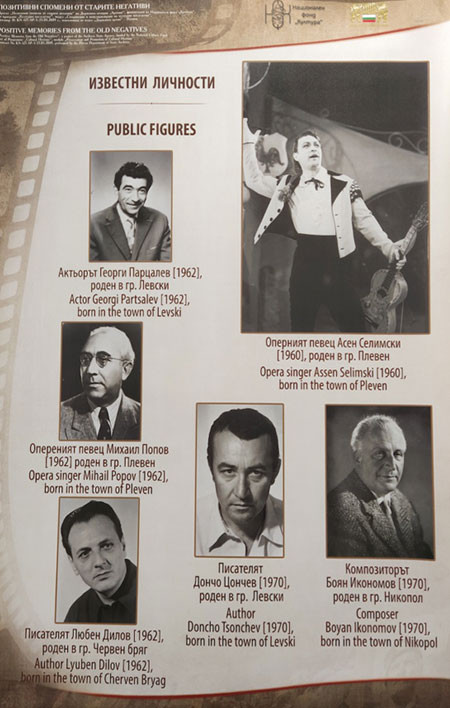 The national archives branch in Pleven has taken a step in this direction by putting down on vinyl part of its photographic heritage, arranged in an exhibition. Twenty-five boards arranged in the hall of the Archives State Agency in Sofia show the different faces of the town – architecture and urbanization, industry, tourism, healthcare, culture, sports.
The national archives branch in Pleven has taken a step in this direction by putting down on vinyl part of its photographic heritage, arranged in an exhibition. Twenty-five boards arranged in the hall of the Archives State Agency in Sofia show the different faces of the town – architecture and urbanization, industry, tourism, healthcare, culture, sports.
Marinela Yordanova, head of archives in Pleven, describes some of the photographs from the past of the town.
Perhaps the most valuable among them are the photographs of the artists whose talent has spread the fame of Pleven and the region – actor Georgi Partsalev, opera singers Asen Selimski and Mihail Popov, writers Doncho Tsonchev and Lyuben Dilov, composer Boyan Ikonomov.
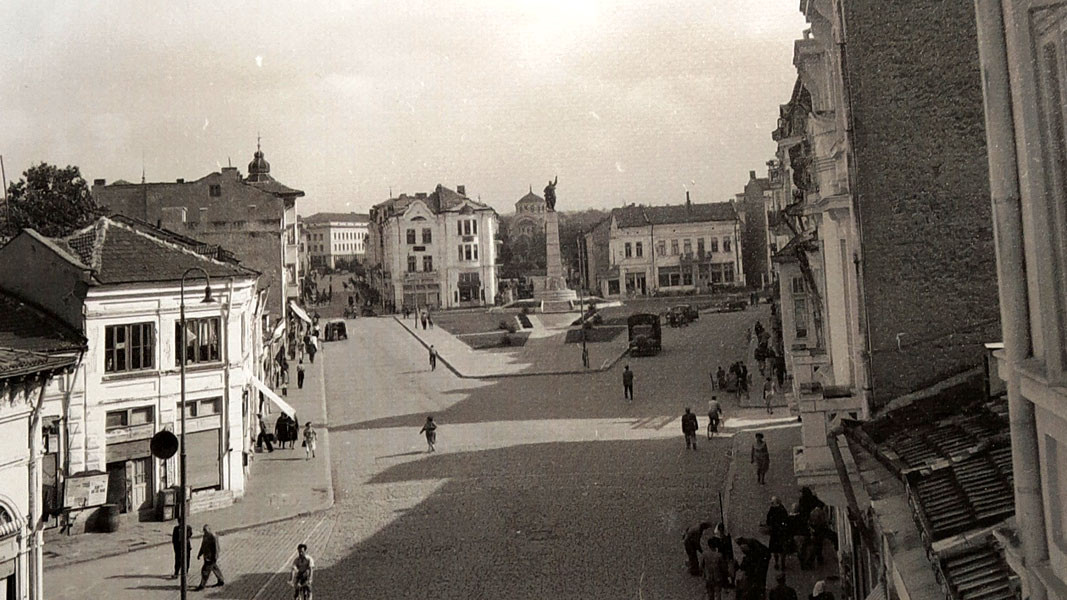
This is a view of the centre of Pleven in 1956, Marinela Yordanova says. Then comes a remarkable photograph from 1943 in which we see soldiers taking a pledge of allegiance to Tsar Simeon II.

Another one of the photographs shows Kayluka Park, and in the “Healthcare” section – a pharmacy from the 1940s that is no longer in existence.
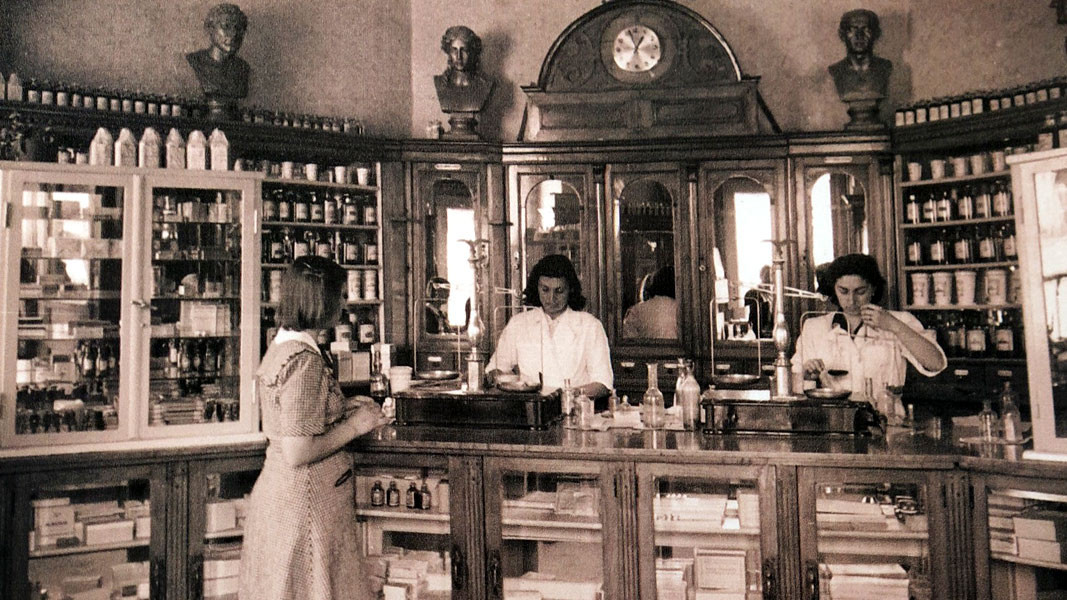
The town’s cultural development can also be traced, with its theatre and opera, and the Severnyashki folklore ensemble. Other intriguing images show the fashion, the hairstyles of the times. There is one photograph showing how a schoolteacher shows the children how to thank God for the food they are about to eat.
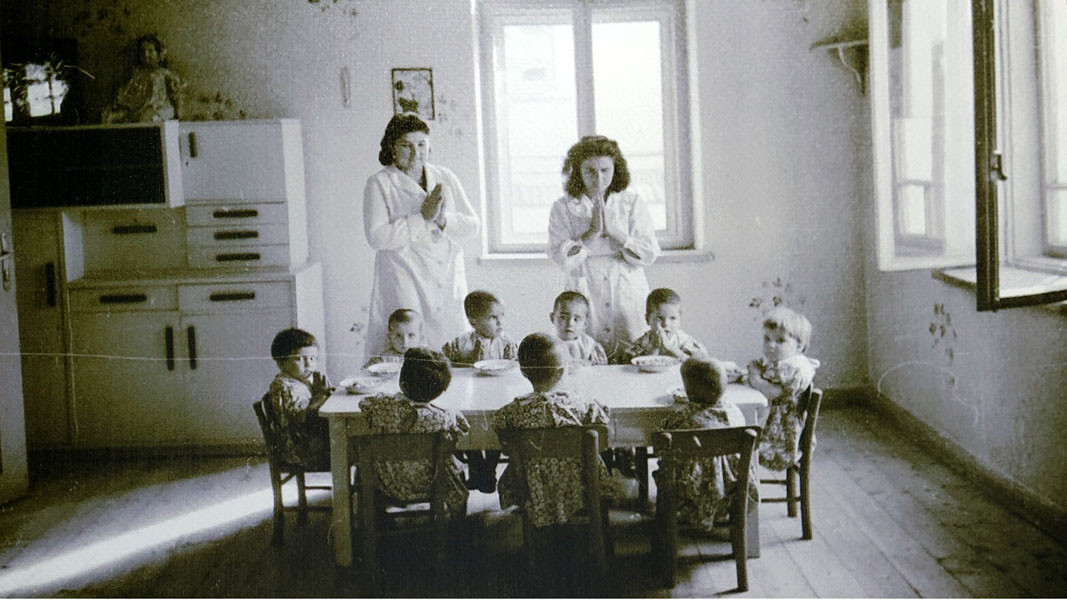
We also see that Pleven once had an airport and industry – a tobacco factory, a vacuum plant, and a photograph of the Industrialists’ Association from 1943.
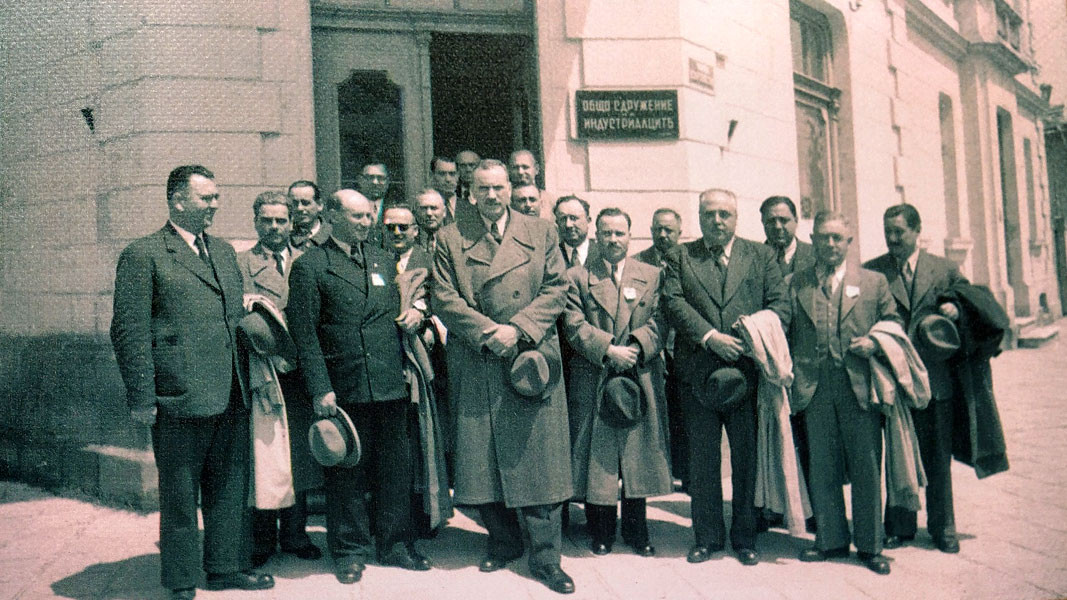
Mihail Gruev, chairman of the National Archives Agency says that the regional divisions also keep a massive amount of photographs and their digitization will preserve the legacy of the past.
These photographs are an invaluable source of information about the public, political, cultural and economic life of Bulgaria in the period of socialism, says Mihail Gruev.
Photos: Diana Tsankova
Archaeologists have discovered a very rare and valuable glass bottle in a 2nd-century tomb in the southern necropolis of the Roman colony Deultum near the village of Debelt (Southeastern Bulgaria). What makes it unique is that it depicts the myth of..
The Days of Croatian Archaeological Heritage, which will last until 8 November, begin today at the National Archaeological Institute with Museum at the Bulgarian Academy of Sciences (NAIM-BAS) in Sofia. The event is organised by the Croatian Embassy in..
Today, 6 November, marks 104 years since the annexation of the Western Outlands in 1920. Traditionally Bulgarian territories in south-eastern Serbia and northern Macedonia were ceded to the Kingdom of Serbs, Croats and Slovenes in 1920 as a result of..
105 years ago, on November 27, 1919, a treaty was signed in the Parisian suburb of Neuilly-sur-Seine, officially ending Bulgaria's..

+359 2 9336 661
